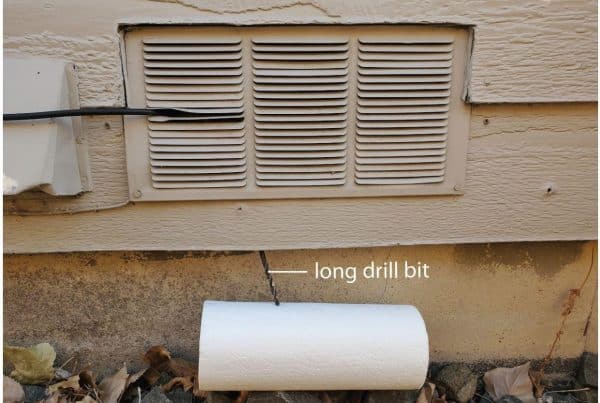Understanding the cost of a new roof in Pennsylvania is essential for homeowners looking to upgrade or replace their current roofing system. Various factors and considerations can influence the overall price of a new roof. Knowing what to expect can help you budget accordingly and make informed decisions throughout the roofing process. Keep reading to learn more about the different factors that affect the cost of a new roof in Pennsylvania.
Material Types and Their Impact on Cost
One of the most significant factors affecting the cost of a new roof is the material chosen. There is a wide variety of roofing materials available, and each comes with its own price tag, durability, and aesthetic appeal. Asphalt shingles, for instance, are a popular choice in Pennsylvania due to their affordability, ease of installation, and relatively long lifespan.
On the other hand, materials such as metal roofing and slate can be more expensive, but they often provide increased durability, weather resistance, and energy efficiency. When deciding on the appropriate roofing material for your home, it’s essential to consider the initial cost as well as long-term maintenance requirements and the material’s lifespan. By evaluating all these factors, you can make a more informed decision and accurately calculate your cost. You can also search for “new roof cost Pennsylvania” to find an estimate for your sized roof.
Selecting a roofing material can be a challenging decision, but it’s an essential aspect to consider when replacing or upgrading your roof. Consider seeking the advice of a professional roofing contractor to determine the best option for your specific needs and budget.
Labor Costs and Professional Installation
While material costs are a significant component of your new roof cost in Pennsylvania, labor costs and installation fees can’t be ignored. The expertise, reputation, and location of the contractor you choose will all affect labor fees. High-quality installation is essential for the longevity and durability of your new roof, so it’s crucial not to cut corners when it comes to hiring a reputable contractor.
When sourcing your quotes, make sure to gather multiple estimates from various roofing contractors in your area, considering not just the cost but also their experience, skills, and customer reviews. By obtaining several quotes, you can ensure a fair price while also remaining confident in the quality of your installation.
Moreover, it’s essential to inquire about any warranties or guarantees they provide for their work. This extra layer of protection can save you the headache of future repairs or problems, ultimately contributing to longer-lasting, more reliable roofing.
The Size and Complexity of Your Roof
The size of your roof will directly correlate with the cost of your new roof installation. Larger roofs require more materials and labor, increasing the overall project cost. In addition, the complexity of your roof, such as steep inclines, multiple roof planes, or intricate designs, can also add to the installation costs. Roofers may need to use specialized techniques or extra equipment to effectively carry out their work on a complex roof, increasing labor expenses.
When estimating costs for your new roof, make sure to consider the dimensions of your home and any unique complexities that may be present. This will help you create a more accurate budget and be prepared for any additional costs that may arise during the installation process.
Furthermore, keep in mind that certain roofing materials may be more adaptable to unique roof designs and specialized requirements. Consult your contractor to get an understanding of which materials will best accommodate your roof’s particular characteristics.
Geographic Location and Climate Considerations

Another factor that plays a role in determining your roofing cost in Pennsylvania is your geographic location. Labor and material prices can vary from one region to another, so it’s essential to get a grip on what to expect in your specific area.
Additionally, climate considerations such as extreme cold temperatures or heavy snowfall can also influence the selection of roofing materials and installation techniques. For instance, homes situated in areas with higher rates of heavy snowfall and cold temperatures may require more resilient and insulating roofing materials, which can impact the overall cost. Working with a local roofing contractor who understands the unique challenges and requirements of Pennsylvania’s climate will ensure your new roof can endure harsh weather conditions and provide long-lasting protection for your home.
Maintenance Costs and Lifespan Considerations
Maintenance costs and the expected lifespan of your new roof are essential factors to consider when calculating the overall investment. A roof with low ongoing maintenance requirements can save you money in the long run, even if the initial cost is higher. Metal roofs are known for their durability and are generally low maintenance, making them an attractive option for homeowners who prioritize long-term value.
Comparatively, roofs made of cheaper materials may require more frequent repairs or have a shorter lifespan. This could lead to higher overall costs, even if the initial investment is lower. When estimating your new roof cost in Pennsylvania, weigh the financial advantages of long-term savings against the upfront material and installation expenses to understand the true value of your preferred roofing option.
Permits and Regulations
Replacing a roof often requires obtaining the appropriate permits and adhering to specific building codes and regulations. These permits and regulations ensure that your roof installation meets safety standards and adheres to local guidelines. Failing to obtain permits or not following regulations can lead to potential fines or complications in the future.
When calculating your roof cost, make sure to account for permit fees and any other expenses associated with regulatory compliance.
Additionally, you can collaborate with a professional roofing contractor to navigate permit applications and building code requirements. Many experienced contractors will handle the paperwork on your behalf, helping to streamline the process and ensure that your project complies with local guidelines.
Add-Ons and Upgrades

Aside from the essential components of a new roof, you may choose to incorporate additional features or upgrades that enhance the functionality or aesthetic appeal of your home. Some popular add-ons include skylights, solar panels, or roof ventilation systems. While these features can significantly improve your home’s value and comfort, they may also add to your overall costs.
When deciding on additional upgrades for your new roof installation, consider your budget and the long-term benefits. If an upgrade can save you money on energy bills or improve the overall livability of your home, it may be a worthwhile investment despite the initial expenditure.
Always consult your contractor about any add-ons you’re considering. They can provide expert advice concerning the feasibility of the upgrades and their potential impact on the overall cost of your new roof in Pennsylvania.
Preparing for Unexpected Expenses
Lastly, it’s crucial to remember that unexpected expenses may arise during the installation process. Issues such as structural damage or the need for additional support can increase total costs. To avoid surprises, set aside a portion of your budget for contingencies. This cushion will help you navigate any unforeseen problems without derailing your financial plans.
An experienced roof contractor can help identify potential risks and provide guidance on how to address these issues. Collaborating with a professional can minimize the chances of encountering unforeseen problems and ensure your installation proceeds smoothly and efficiently.
Overall, being prepared for unexpected costs is an essential part of the budgeting process. By setting aside funds for contingencies, you can move forward with your new roof with confidence and peace of mind.
Understanding the factors that influence the cost of a new roof in Pennsylvania can greatly assist you in planning your roofing project. By considering aspects such as materials, labor, climate, and additional features, you can create a realistic budget and strategically invest in the best-suited solutions for your home.








